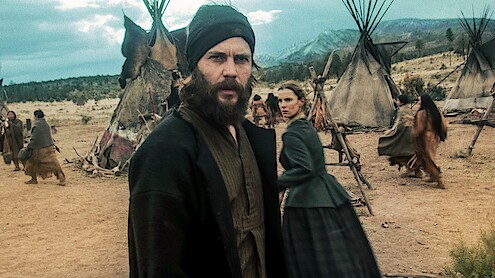
In a shocking and distressing incident that has gripped the state of Uttar Pradesh, a young man from Hardoi was subjected to a barbaric and inhuman attack simply for meeting his girlfriend. What was supposed to be a normal, personal interaction between two consenting adults turned into a horrific episode of violence, highlighting the deep-seated societal issues that continue to plague parts of rural and semi-urban India.
The brutality of the attack, which included forcing the young man to drink urine and pouring boiling water on his bare body, has not only traumatized the victim physically and mentally but has also stirred widespread anger and debate across the country. This incident is a grim reminder of the pervasive mindset of “honor-based” violence and the urgent need for societal reform and stronger legal protection.
The Incident That Shook Hardoi: A Detailed Account
According to local sources and the victim’s statement, the young man had gone to meet his girlfriend in her family home in Hardoi. The couple’s relationship was reportedly consensual, yet it was met with vehement disapproval from the girl’s family members. Instead of resolving the matter through dialogue or legal means, the family chose to take the law into their own hands, resulting in an appalling act of vigilantism.
The family members allegedly restrained the young man and inflicted horrific torture. Among the grievous acts was forcing the victim to consume urine — an act that is considered deeply humiliating — and pouring boiling water on his exposed skin. These acts not only caused severe physical burns but also left lasting emotional trauma. Eyewitnesses described the scene as one of cruelty beyond belief, and the victim’s injuries required immediate medical attention.
This savage treatment reflects the darkest side of societal attitudes toward personal relationships that do not conform to traditional or family expectations. The incident has since become a focal point of discussions on violence against youth in India, particularly related to “love jihad,” caste conflicts, or inter-community relationships that sometimes provoke extreme reactions.
Cultural and Social Underpinnings of Such Violence
To understand the roots of this brutal attack, one must look at the broader cultural and social context prevailing in many parts of India. Traditional communities often place immense importance on family honor and social reputation, which can sometimes override basic human rights and legal boundaries.
Relationships, especially those that cross caste, religion, or economic lines, are frequently viewed through the prism of societal control rather than personal choice. Families who perceive such relationships as a threat to their honor may resort to violent measures, including physical assaults, social boycotts, or worse — honor killings.
The Hardoi incident is not an isolated case but part of a troubling pattern of violence where families impose their will on young adults by any means necessary. This reflects patriarchal values that prioritize community reputation over individual freedom and often involve gender-based discrimination, as girls and boys alike face restrictions on their relationships.
The underlying mindset equates personal relationships with family “honor,” and any perceived deviation is met with disproportionate retribution. Such beliefs are compounded by inadequate legal deterrents and social acceptance of vigilante justice in some communities.
Legal Framework and Police Response
Following the attack, the Hardoi police registered a formal case against the accused family members after the victim filed a complaint. The authorities have assured the public that the investigation is ongoing and those responsible will be brought to justice. Senior police officials have emphasized the importance of due process and strict enforcement of the law to prevent recurrence.
Despite these assurances, cases like these often face numerous challenges. Victims may be intimidated or pressured to withdraw complaints due to the victim’s vulnerable position and the influence wielded by powerful families. Witnesses might hesitate to come forward out of fear of retaliation, and local politics can sometimes obstruct swift justice.
The Hardoi case has, however, attracted increased media attention and public scrutiny, which has pressured authorities to act transparently. Law enforcement agencies are also under pressure to implement preventive measures and improve victim protection mechanisms.
Legal experts argue that existing laws regarding assault, torture, and illegal confinement provide sufficient grounds for stringent action against such perpetrators. Moreover, specific legislation addressing honor-based violence exists but requires better implementation and awareness.
The Physical and Psychological Impact on the Victim
The young man who suffered this attack continues to bear the physical and emotional scars of the incident. Medical reports indicate severe burns caused by boiling water, requiring ongoing treatment and rehabilitation. His injuries have left him in immense pain, with potential long-term health consequences.
More profound, however, is the psychological trauma endured. Victims of such brutality often face anxiety, depression, post-traumatic stress disorder (PTSD), and a sense of social alienation. Being humiliated publicly and subjected to inhumane treatment shakes one’s trust in society and justice.
Mental health professionals emphasize the need for comprehensive support systems — including counseling, community reintegration programs, and victim advocacy — to help survivors rebuild their lives and regain confidence. In rural areas like Hardoi, access to such resources is often limited, underscoring the need for government intervention.
The victim’s family and supporters have rallied behind him, demanding justice and accountability. Their courage in speaking out challenges a culture of silence that often surrounds cases of family violence and highlights the importance of community support in healing.
Broader Societal Implications and the Need for Change
The Hardoi attack must be seen as a symptom of larger societal failures. It exposes the persistent problems of patriarchal control, caste and community-based prejudice, and the lack of respect for individual rights. The intersection of these issues creates an environment where violence is normalized as a form of social control.
This incident raises critical questions about how Indian society views young people’s autonomy, particularly concerning romantic relationships. It reveals a clash between modern values of personal freedom and entrenched traditional norms that dictate behavior based on family honor.
Addressing these challenges requires a multi-faceted approach involving education, legal reform, community engagement, and media responsibility. Schools and local organizations should promote awareness about individual rights, gender equality, and the importance of non-violence.
Government initiatives must focus on strengthening law enforcement mechanisms, improving victim protection, and ensuring speedy trials in cases of honor-related violence. Social campaigns that challenge harmful stereotypes and encourage dialogue between generations can foster mutual understanding.
Voices of Activists and Community Leaders
Human rights groups and activists have condemned the attack in Hardoi as a gross violation of human dignity and the rule of law. They stress that no family or community has the right to take justice into their own hands or commit acts of cruelty in the name of honor.
Activists argue that the government must take a stronger stance against honor-based violence, including enforcing existing laws more rigorously and raising awareness through educational programs. They also call for better protection for young people who face threats due to their personal choices.
Community leaders who support progressive values advocate for greater dialogue within families and communities to break down rigid social norms. They emphasize that respect, trust, and empathy are essential for healthy relationships and social cohesion.
The case has ignited conversations nationwide about the urgent need to safeguard personal freedoms while promoting social harmony.
The Intersection of Tradition, Law, and Modernity
This tragic incident underscores the complex tension between deeply rooted traditions and the imperatives of modern law and human rights. In many Indian communities, cultural practices and family honor often take precedence over constitutional rights.
While India’s legal system provides protections against assault, torture, and discrimination, enforcement gaps allow vigilante violence to persist, especially in rural areas where social structures are tightly knit and conservative values dominate.
The Hardoi case calls for a renewed commitment to upholding the rule of law without compromise. It also invites reflection on how to reconcile respect for cultural identity with the protection of individual liberties.
Efforts to modernize legal and social frameworks must be accompanied by community-driven change that empowers youth and challenges harmful patriarchal norms.
Media’s Role in Shaping Public Opinion and Policy
The media coverage of the Hardoi attack has played a crucial role in bringing this atrocity to light. Responsible journalism has highlighted not only the brutality of the act but also the broader issues surrounding honor violence and youth rights.
Social media, in particular, has amplified voices calling for justice and reform, helping to break the silence that often shrouds such crimes. Public outrage expressed online has pressured authorities to act more decisively.
However, media also has a responsibility to report with sensitivity, avoiding sensationalism or victim-blaming that can retraumatize survivors. Balanced coverage can help educate the public and support victims’ dignity.
The incident highlights how media can influence legal and policy reforms by shaping public discourse and mobilizing civic action.
Rehabilitation and Long-Term Support for Victims
Healing from such an ordeal requires comprehensive rehabilitation efforts. Physical treatment must be complemented by psychological counseling and social support to help victims recover fully.
Government programs and NGOs can play a vital role by providing medical aid, mental health services, legal assistance, and vocational training to survivors. Community acceptance and reducing stigma are equally important for reintegration.
The victim’s story in Hardoi should inspire the establishment of more victim-centric services across India, especially in underserved rural areas.
Rehabilitation not only aids recovery but also empowers survivors to reclaim their lives and assert their rights.
Legal Reforms and Policy Recommendations
To prevent future incidents like Hardoi, lawmakers and policymakers need to strengthen legal provisions relating to honor-based violence. This could include specific laws that address vigilante justice, harsher penalties for perpetrators, and protective measures for victims.
Training law enforcement officials to handle such cases sensitively and effectively is critical. This includes victim support, investigation protocols, and community policing strategies.
Public awareness campaigns should complement legal reforms to foster a culture of non-violence and respect for personal freedoms.
Coordination between government bodies, civil society, and community organizations can create a more supportive environment for youth.
Building a Safer Future: The Road Ahead
The brutal attack on the young man in Hardoi is a stark reminder of the work that remains to build a society where personal choices are respected, and violence is not tolerated.
Creating a safer, more equitable India requires collective action — from families, communities, law enforcement, and policymakers — to dismantle oppressive norms and uphold human dignity.
Empowering young people to live free of fear and discrimination is essential for India’s progress as a modern democracy.
Let this tragedy catalyze lasting change, ensuring that love and freedom are cherished rights, not crimes punishable by torture and humiliation.

